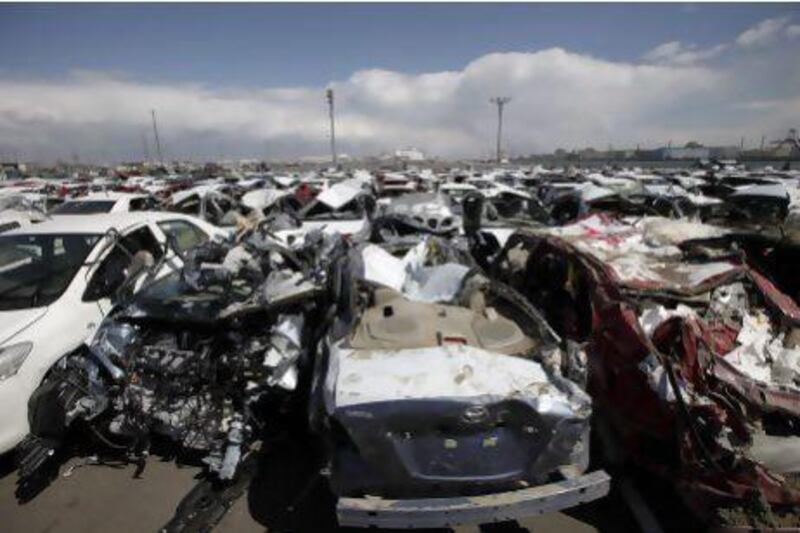Car hire companies are struggling to meet demand from customers as supplies of new vehicles dwindle after Japan's recent earthquake and tsunami caused a sharp fall in global car production.
Toyota, the world's largest car maker, supplies thousands of cars to rental companies across the Emirates. But a slowdown in production has meant some leasing companies are recommending customers switch to other brands, or are delaying replacement of hire cars until supplies pick up.
Budget Rent A Car said Yaris, Camry, Corolla and Fortuna models were all out of stock, so the company is switching to Mitsubishi and Nissan cars, which are produced outside of Japan.
Dominic Hagerty, a sales manager in the UAE for Budget, said Al-Futtaim Motors, the exclusive dealer for Toyota in the UAE, raised its prices two weeks after the quake and has since said some models would not be available until September.
"Al-Futtaim began upping their prices because there's a real shortage of cars," Mr Hagerty said. "We had already put in a number of orders for customers and have had to switch them to other brands, mainly Nissan and Mitsubishi."
Al-Futtaim estimates Toyota makes up more than 40 per cent of the new car market in the Emirates, and is popular among car rental companies because of its reputation for reliability and high resale value.
Mr Hagerty said Al-Futtaim initially raised the price on all Toyotas by a flat Dh3,000 (US$816) but now most of the models, apart from the high-specification cars, were out of stock. The trade price of a Yaris is about Dh44,000, Mr Hagerty said.
"Every car rental company is in the same boat, unfortunately, so it's about how we can sell the other brands," he said.
Budget has 19,000 vehicles out on long-term leases and 2,100 on short-term deals. It normally buys about 900 Toyotas a year from Al-Futtaim but has bought none in the past month, Mr Hagerty said.
Japanese factories were forced to halt production of cars after the disasters on March 11.
But having since resumed production, analysts predict a shortage of parts is going to continue to affect the supply chain for months to come.
Japan's domestic sales of new cars, lorries and buses logged the largest ever drop last month, down 51 per cent to 108,824 units from the same month a year earlier, the Japan Automobile Dealers Association said this week.
Simon Frith, the managing director at Al-Futtaim Motors, said the company had experienced a slowdown in cars but was selling to all channels, including consumers.
"Supply of Yaris is less than we would normally carry, but not drastically less. It all depends on the spec," Mr Frith said.
Al-Futtaim Motors receives half of its Toyota cars from Japan and the other half from the US, Australia and countries in Asia.
Nigel Johnson, the managing director for Hertz in the UAE, part of the Al-Futtaim Group, said the shortage of cars was an issue for all makers, not just Toyota, due to a shortage of parts.
"Toyota is critical to the corporate car-leasing market in the UAE because the cars are known for their reliability," Mr Johnson said.
He said he was recommending corporate clients delayed replacing their Toyota rental fleets with new cars until the challenges were resolved.
Rahul Singh, the general manager in the UAE for Thrifty, said there was a shortage of Toyotas but the company could offer other brands.
Michel Taride, the president of Hertz International, said globally the company would see a delay in the number of Toyotas and Nissans arriving in the US, but Europe and Australia would probably be unaffected.
"The fall is down to the parts," Mr Taride said. "I would not say it is a disaster, though. We are not worried about supply."
* with reporting by Hadeel al Sayegh





